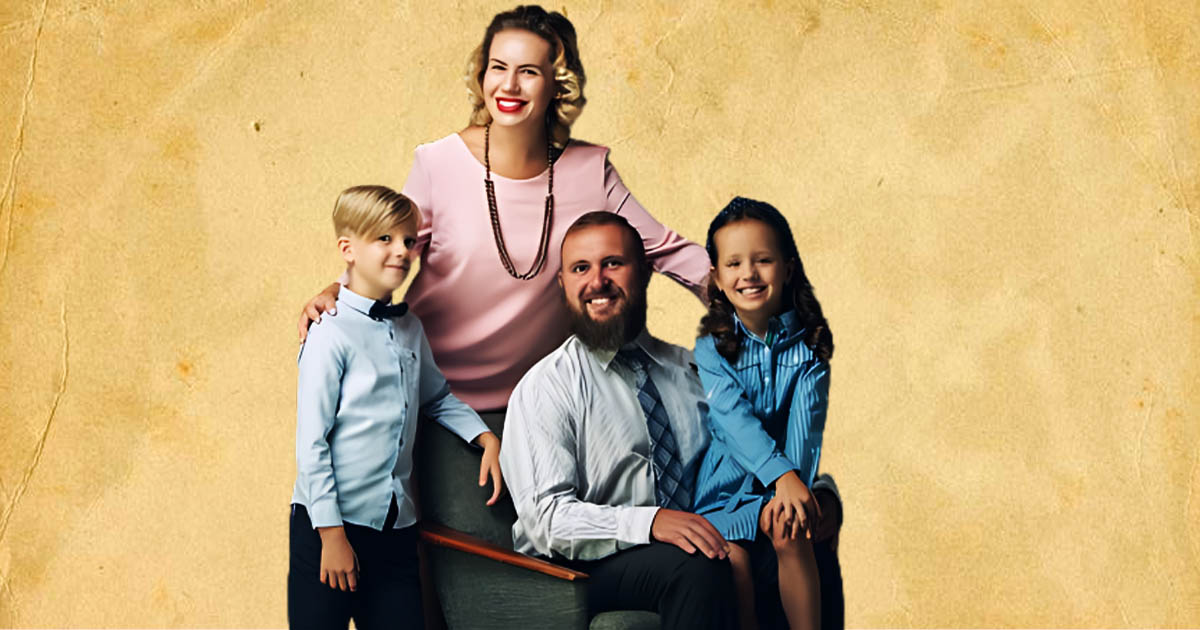What does modern families need in order to succeed? According to statistics, things don’t look good for the average American household. We’re constantly bombarded with stories of divorce, delinquency, infidelity, “broken homes”… sometimes even physical and emotional abuse.
There are many definitions of happy modern families; however, most sociologists and family therapists can agree upon certain key points that distinguish successful families from unsuccessful ones.
The qualities listed below are among those considered most important for healthy family life by experts. The roster is not intended to be exhaustive or all-inclusive. Many families will lack some of these traits – but they may still serve as useful guides toward which families could strive.
What Defines A Healthy Modern Families?
In order to be healthy, a modern families should have several characteristics. These should be able to help them adapt during hard times as well as support each others’ resilience. Below are some of the most essential features that research and experts have identified so far.

Families said to be healthy show appreciation for one another by openly expressing gratitude and love. Also, they respect each other’s feelings leading to an increased emotional attachment among its members.
A good family unit has strong commitment towards itself; members never quit on one another no matter what happens but rather they stay together through thick and thin showing determination even in the face of difficulties thereby exhibiting their ability to bounce back.
Roles and expectations within today’s families need to be flexible because this enables them cope with different situations in life. This is very important considering the current fast-paced world full of uncertainties.
Read More: What Is Family? Learn Types Of Family And What Is An Ideal Family?
Ten Qualities of Healthy Modern Families
The following are some of the qualities of healthy modern families:

1. Committed Healthy Families
In a healthy family of today, there must be commitment towards individual members’ health and growth as well as the whole family system.
When it comes to self-fulfillment encouragement by other family members in our families is more beneficial than anything else. Also, we have healthier families if there is a commitment to the wellness of all members of that society.
That means sometimes we do things for ourselves and at other times we do them because they are good for us or those around us such as our families; finding balance being key here too.
2. Clear Expectations and Values
While children may benefit from having some say in the rules that govern their lives — which are predominantly set by parents who also explain why these guidelines matter — it would make a parent’s job easier if they were to ask their kids what consequences should follow certain actions.
Additionally, it is much easier for you to give someone direction when they state that they believe in something (e.g., being kind) than when you tell them but later remind yourself along the way after seeing signs of deviation from such beliefs on their part.
Family meetings involving discussions about common values can help modernize any home life too.
Read More: 10 Effective Consequences for Kids’ Bad Behavior You Need To Use!
3. Effective Communication:
Healthy modern families place importance on open, sincere and courteous communication. Healthy families ensure that there is an atmosphere whereby all members can comfortably share their thoughts, emotions and worries without being judged or retaliated against.

This type of communication goes beyond just talking about superficial things and involves discussing values, goals and feelings too. In addition to this, active listening is encouraged where each person tries to understand things from the other person’s point of view.
Moreover, healthy families not only communicate during conflicts but also in times of happiness and celebration which further strengthens their connection.
4. Mutual Respect:
In contemporary healthy modern families mutual respect acts as the cornerstone for such establishments since people recognize others as individuals who have different opinions, feelings and boundaries.
For example, family members should respect one another when they are speaking by not belittling or criticizing what someone else says even if it does not make sense at that moment according to them. It means that within a respectful family setting people do not judge different views but accept them thereby promoting tolerance towards diversity.
Furthermore this regard should be observed during decision-making processes where everybody’s input is taken into account until consensus is reached if possible.
5. Flexibility:
No matter where we live or what we do for a living, it’s clear that things are going to change. The most important thing is being able to go with the flow and adapt when necessary; after all, there’s no stopping progress!
That attitude is what makes our families so strong – they’re always ready for whatever might come their way. Being flexible means switching roles and moving routines around as needed; sometimes you just have to be openminded about stuff like this.
We’ve found that healthy families foster resiliency through an adaptable approach towards life which has been invaluable during these difficult times as it equips individuals with essential skills required for successful living in an ever changing world.
6. Having fun together:
Healthy families understand the importance of spending time together even with their busy schedules. They know that this is one way of strengthening relationships between family members as well as creating lasting memories with one another.

From sharing meals to engaging in recreational activities or simply having deep conversations, quality moments among kinfolks should not be sacrificed at any given cost because such experiences lay a foundation upon which love thrives forever.
What matters most during these occasions are undivided attention coupled by active participation which help individuals bond emotionally thereby reinforcing social connection among them too.
But it’s not just about how many hours you spend sitting next to someone – it’s about really being present with them.
7. Conflict Solving Expertise:
In all families, there is always bound to be conflict but what matters is how people deal with it and healthy families have good conflict-solving skills which help them handle disagreements positively.
Instead of shunning away from it or using negative methods, they approach the problem together with cooperation, empathy and willingness to give up some things for others’ happinesses. They listen attentively, assert themselves when necessary and employ methods that can solve problems while at the same time dealing with root causes.
When conflicts are resolved amicably within such a setting, it strengthens family bonds because people trust each other more and care about one another’s needs even better creating an enabling environment for mutual respect towards differences in opinion.
8. Happiness of Mind:
Healthy families pay attention to their members’ mental states by fostering support systems where feelings are recognized, justified and controlled appropriately.
They do this by promoting emotional intelligence through allowing individuals express their emotions freely; teaching them skills on how cope with stress or any other life challenges; providing love without conditions among many others.
Within such a setup people should feel secure enough to share both positive and negative experiences knowing well that nobody will judge them but rather offer comfort if need be thus making such homes very strong foundations for psychological resilience in life where individuals can tackle various difficulties confidently without losing hope.
Read More: How To Raise Confident Kids: 10 Effective Methods Parents Should Know!
A Word From Mind Family
Sometimes, statistics appear to be a little bit pessimistic; however, it’s essential to understand that commitment, communication, respect for each other, flexibility and mental health form the bedrock of successful families.
As Mind Family, we are convinced that every family can develop these positive qualities and fit well into the current changing world. Families should create strong connections among themselves by having open talks with one another, treating everyone equally as well as spending good time together even during tough times.
Additionally, when different cultures or backgrounds come together in one household it creates an environment where everybody feels accepted valued loved and appreciated therefore leading to stronger relationships within the family which ultimately contributes towards peace building in societies at large.
Frequently Asked Questions (FAQs)
What are key qualities of healthy modern families?
Healthy families exhibit commitment, communication, respect, adaptability, quality time together, conflict resolution skills, and prioritize emotional well-being.
Why is communication important in a family?
Open, honest, and respectful communication fosters understanding, strengthens bonds, and resolves conflicts constructively, contributing to a healthy family dynamic.
How can families navigate conflicts effectively?
By practicing cooperation, empathy, active listening, assertive communication, and compromise, families can resolve disagreements respectfully and strengthen relationships.


















Leave a Reply